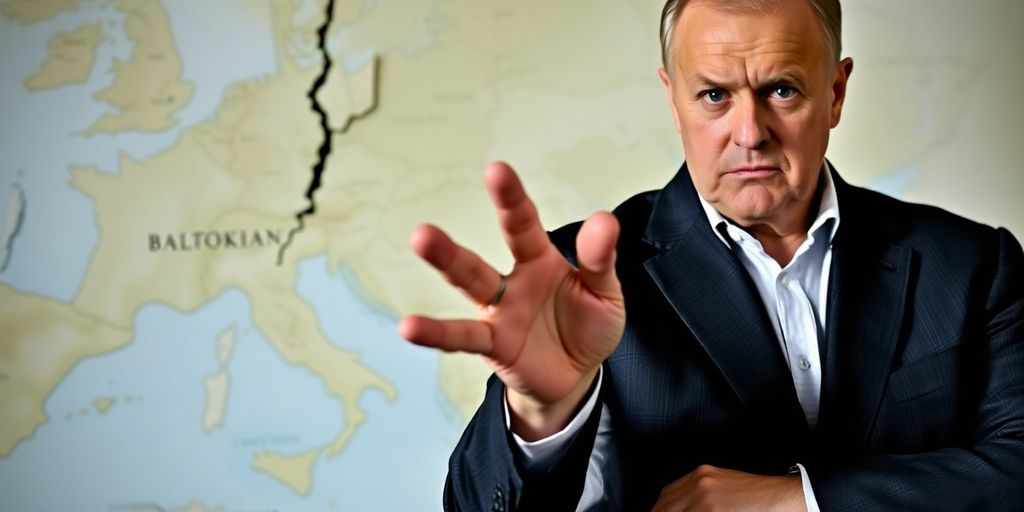Pro-Russian leader Milorad Dodik’s defiance of international peace efforts and his tightening grip on power in Republika Srpska are escalating tensions in the Balkans. His actions, bolstered by Kremlin support, threaten to destabilize Bosnia and Herzegovina, pushing the country towards its most severe crisis since the 1990s war and raising significant concerns about regional stability.
Dodik’s Defiance and Russian Alliance
Milorad Dodik, despite a recent criminal conviction for defying an international peace envoy, continues to lead Republika Srpska, one of Bosnia and Herzegovina’s two autonomous entities. His repeated visits to Russian President Vladimir Putin in Moscow underscore the Kremlin’s significant role in destabilizing the region. Dodik’s actions are seen as an open confrontation with the central Bosnian government, using Russia to bolster his position.
- Dodik has made multiple visits to Russia, praising Putin and supporting the invasion of Ukraine.
- His rhetoric often echoes false Kremlin narratives, including claims of ethnic repression against Bosnia’s Serb population.
Escalating Tensions and International Concerns
The situation in Bosnia and Herzegovina is tense and unpredictable. Dodik’s embrace of Russia and his defiance of the central government risk dragging the country into a major crisis. Experts suggest that Russia benefits from having another conflict to divert attention from Ukraine.
- Dodik’s support for a controversial measure to suspend the rulings of Bosnia’s Constitutional Court within Republika Srpska directly challenged the Dayton Accords, which ended the civil war in 1995.
- The High Representative for Bosnia and Herzegovina, Christian Schmidt, annulled this measure and amended the criminal code, leading to Dodik’s conviction for defying orders.
- Despite a one-year jail sentence and a six-year ban from office, Dodik remains at the helm of Republika Srpska.
The Path Forward
While few believe there will be a return to widespread violence, tensions are expected to escalate, and small-scale conflicts remain a possibility. Dodik shows no signs of backing down, having announced plans for Republika Srpska to form an independent border police force, a potential major escalation.
- Dodik’s actions are seen by some as a "de facto coup d’etat" that threatens constitutional order and Bosnia and Herzegovina’s bid for EU membership.
- The international community remains concerned about Russia’s influence in the region, including reports of pro-Kremlin hybrid warfare operations.
- The potential for Republika Srpska’s slow integration into Serbia and restrictions on movement along internal boundaries could further destabilize the region.






